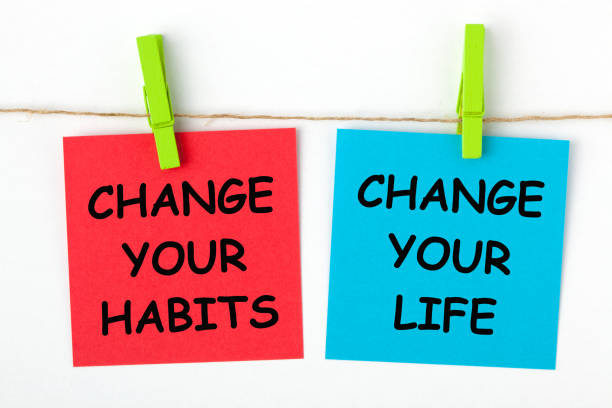Natural Ways to Support Weight Loss
Supporting weight loss naturally involves a combination of healthy habits. There are some diet and fitness tips for you that you can follow easily in your busy life. First, focus on a balanced diet rich in whole foods like fruits, vegetables, lean proteins, and whole grains. Staying hydrated is key, so drink plenty of water throughout the day. Regular physical activity, such as walking, yoga, or strength training, can boost metabolism and help burn calories. Getting enough sleep and managing stress are also important, as poor sleep and high stress can hinder weight loss. Lastly, eating mindfully, listening to your body’s hunger cues, and avoiding overeating can support long-term, sustainable results. These simple, natural approaches can make a significant difference in your weight loss journey.
Table of Contents
Stay Hydrated
Water is essential for numerous bodily functions, including regulating body temperature, maintaining joint lubrication, and aiding digestion. Staying adequately hydrated can also enhance your skin’s appearance and help prevent bloating. Set a goal to drink at least 2 liters of water daily. If you’re active or live in a hot climate, you may need more. Monitor your hydration by checking the color of your urine—pale yellow indicates proper hydration, while dark yellow suggests you may need to drink more.

Get Enough Sleep
Benefits of Sleep: Sleep is crucial for physical and mental health. It allows your body to repair and rejuvenate tissues, bolsters your immune system, and enhances cognitive functions such as memory and decision-making. Lack of sleep can lead to increased stress and a higher risk of chronic conditions like obesity, diabetes, and heart disease.
Establishing a Sleep Schedule: 7-9 hours of sleep should be necessary for you . Create a consistent sleep routine by going to bed and waking up at the same time every day, even on weekends. Limit screen time before bed and create a restful environment by keeping your bedroom cool, dark, and quiet.
Eat a Colorful Diet
Eating a colorful diet can be a powerful strategy for weight loss, as it encourages the consumption of a variety of nutrient-dense foods that are typically lower in calories and high in fiber. By incorporating a spectrum of fruits and vegetables—such as leafy greens, bright berries, vibrant peppers, and orange carrots—you not only boost your intake of essential vitamins and minerals but also enhance satiety, helping you feel full longer and reducing the temptation to snack on unhealthy options. This variety also supports metabolism and digestion, making it easier to maintain a balanced and sustainable weight loss journey.

Keep Your Portions in Control
When adjusting your diet for weight management, practicing portion control is essential. This involves being mindful of the quantities you serve yourself and recognizing the ideal balance of foods on your plate. For instance, if a steak occupies more than half of your plate, it’s a good idea to reduce the portion size, perhaps cutting it in half. Instead, aim to fill half your plate with a variety of colorful vegetables or a mix of veggies and fresh fruit. This not only ensures you get a healthy mix of proteins, fats, and carbohydrates but also helps lower your overall calorie intake while maximizing nutrients.

Mix Up Your Workout
Repeating the same workout routine every day can lead to boredom and decreased motivation, but it also limits the benefits for your body. To keep your workouts effective and engaging, it’s important to mix things up. Variety in your routine challenges your muscles in new ways, preventing muscle adaptation, where your body becomes accustomed to specific movements and stops progressing. By incorporating different exercises, such as alternating between strength training, cardio, flexibility workouts, and recreational activities, you can enhance your fitness, build muscle, and keep things interesting. Experiment with new classes, outdoor activities, or different workout styles to discover what you enjoy most while continuously pushing your limits!

Stay Positive
Weight loss is a gradual journey, and it’s common to feel discouraged if progress isn’t happening as quickly as expected. Remember that sticking to a weight loss or maintenance program will have its ups and downs; perseverance is key during challenging times. It’s important to maintain a positive outlook and not give up when faced with obstacles. If you find yourself struggling, consider resetting your goals by adjusting your calorie intake or changing your exercise routine to keep things fresh and motivating. Celebrate small victories along the way, and focus on the progress you’re making rather than just the scale. Staying positive and persistent will help you overcome barriers and achieve lasting success in your weight loss journey.

Count Calories
Being mindful of your food intake is crucial for successful weight loss, and tracking your calories can be an effective way to stay aware of what you’re eating. You don’t have to count calories all the time, but doing it now and then can help you notice your eating habits and make better choices. Consider using a calorie-counting app, which can be more efficient and user-friendly than traditional food diaries. Alternatively, keeping a food diary or taking pictures of your meals can provide insight into your eating habits without the need for constant tracking. By periodically assessing your intake, you can stay accountable and adjust your diet as needed to support your weight loss goals.

Eat More Slowly
Eating slowly is a simple yet effective strategy for weight management. When you rush through meals, you may consume more calories than your body actually needs before it has a chance to signal that you’re full. Research shows that fast eaters are more likely to develop obesity compared to those who take their time. By chewing your food thoroughly and savoring each bite, you not only enjoy your meals more but also give your body the time it needs to produce hormones linked to weight loss. Slowing down your eating can help you feel more satisfied with smaller portions, ultimately leading to healthier eating habits and better weight management.

Low-Carb and Rich of Protein and Fiber Diet
Many studies indicate that low-carb diets can be highly effective for weight loss. By reducing your carbohydrate intake and increasing your consumption of healthy fats and proteins, you may experience a natural reduction in appetite, making it easier to consume fewer calories overall. Research suggests that individuals on low-carb diets can achieve weight loss results up to three times greater than those following standard low-fat diets. Additionally, low-carb eating patterns have been shown to improve various risk factors for diseases, including blood sugar levels, cholesterol, and triglycerides. If you’re considering a dietary change, experimenting with a low-carb approach could be a beneficial strategy for achieving your weight loss goals and enhancing your overall health.

Focus on Changing Your Lifestyle
Focusing on lifestyle changes rather than temporary dieting is key to achieving lasting weight loss and overall health. Many traditional diets fail in the long run, often leading to weight regain. Instead of concentrating solely on losing weight, prioritize nourishing your body with nutritious foods and incorporating daily movement into your routine. This approach fosters a healthier relationship with food, encourages sustainable eating habits, and promotes regular physical activity. By making these lifestyle adjustments, you’ll not only support weight loss but also enhance your well-being and vitality, making it easier to maintain your goals over time.

How to lose weight fast: 10 tips?
1. Eat a Balanced Diet: Focus on whole foods, including lean proteins, fruits, vegetables, and whole grains.
2. Control Portions: Be mindful of portion sizes to avoid overeating.
3. Increase Protein Intake: Protein helps you feel full longer and boosts metabolism.
4. Stay Hydrated: Drink plenty of water, which can reduce hunger and calorie intake.
5. Limit Sugar and Refined Carbs: Reduce sugary snacks and beverages, as well as white bread and pasta.
6. Exercise Regularly: Combine cardio with strength training to maximize fat loss and muscle gain.
7. Get Enough Sleep: Aim for 7-9 hours of quality sleep per night to support weight loss.
8. Manage Stress: High stress can lead to emotional eating; practice stress-reducing techniques.
9. Track Your Progress: Use a food diary or app to monitor your intake and activity.
10. Stay Consistent: Adhere to your plan even on challenging days for long-term success.
How can I lose 10 kgs naturally?
To lose 10 kg naturally, focus on creating a sustainable calorie deficit through a combination of a balanced diet and regular exercise. Incorporate whole, unprocessed foods, increase physical activity, stay hydrated, and ensure you get enough sleep. Gradual weight loss (0.5-1 kg per week) is healthiest and most sustainable.
How to slim a body in 7 days?
While significant changes in body composition take time, you can adopt healthy habits to feel slimmer in a week:Follow a low-carb, high-protein diet.
Increase water intake to reduce bloating.
Incorporate daily workouts, including cardio and strength training.
Limit salt intake to avoid water retention.
Get adequate sleep and manage stress levels.
Avoid processed foods and sugary snacks.
Remember, drastic changes in appearance may not be sustainable, so focus on overall health.
What is the 4-30-10 method for weight loss?
The 4-30-10 method involves a structured approach to daily activity:4: Aim for 4 servings of vegetables each day.
30: Engage in 30 minutes of physical activity daily.
10: Include 10 minutes of mindfulness or meditation to manage stress and promote mental well-being.
This method encourages a holistic approach to weight loss by integrating nutrition, exercise, and mental health.
If you have more questions or need further details, feel free to ask!
What are the 7 steps to losing weight?
7 Steps to Losing Weight
Set Realistic Goals:
Establish specific, measurable, achievable, relevant, and time-bound (SMART) goals. Focus on gradual weight loss, aiming for 0.5 to 1 kg (1 to 2 pounds) per week.
Adopt a Balanced Diet:
Emphasize whole, nutrient-dense foods such as fruits, vegetables, lean proteins, whole grains, and healthy fats. Limit processed foods, added sugars, and refined carbs.
Control Portions:
Be mindful of portion sizes to avoid overeating. Using smaller plates, measuring servings, and paying attention to hunger cues can help.
Increase Physical Activity:
Aim for at least 150 minutes of moderate-intensity aerobic activity each week, combined with strength training exercises at least two days a week. Find activities you enjoy to stay motivated.
Stay Hydrated:
Drink plenty of water throughout the day, as it can help control hunger and improve metabolism. Sometimes, thirst can be mistaken for hunger.
Get Enough Sleep:
Aim for 7-9 hours of quality sleep each night. Poor sleep can disrupt hormones that regulate appetite, making it harder to lose weight.
Monitor Your Progress:
Keep track of your food intake, exercise, and weight changes. Journaling or using apps can provide insights and help you stay accountable to your goals.
By following these steps consistently, you can create a sustainable weight loss journey that promotes long-term health and well-being.
How can I lose 10 pounds in a week?
Losing 10 pounds in a week is aggressive and may not be safe, but if you want to try, here are some key strategies:
Create a Caloric Deficit: Aim to reduce your caloric intake by 1,000 to 1,500 calories per day.
Follow a Low-Carb Diet: Focus on lean proteins, healthy fats, and non-starchy vegetables to reduce water weight and appetite.
Increase Water Intake: Drink plenty of water to stay hydrated and reduce bloating.
Exercise Intensively: Engage in high-intensity workouts and strength training for at least 30-60 minutes daily.
Limit Sodium and Processed Foods: Reducing sodium can help prevent water retention.
Get Enough Sleep: Aim for 7-9 hours of quality sleep to regulate hunger hormones.
Always consult a healthcare professional before making drastic changes, and prioritize healthy, sustainable habits for long-term weight management.











One Response